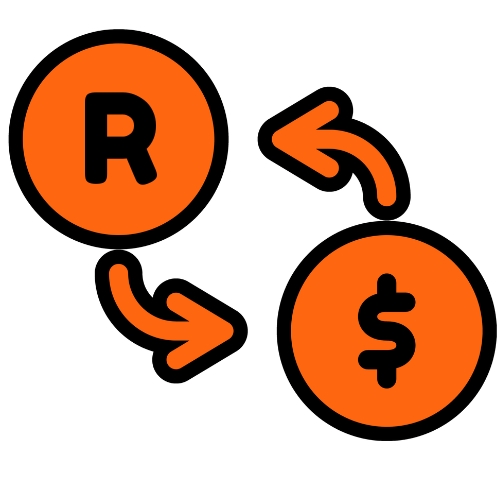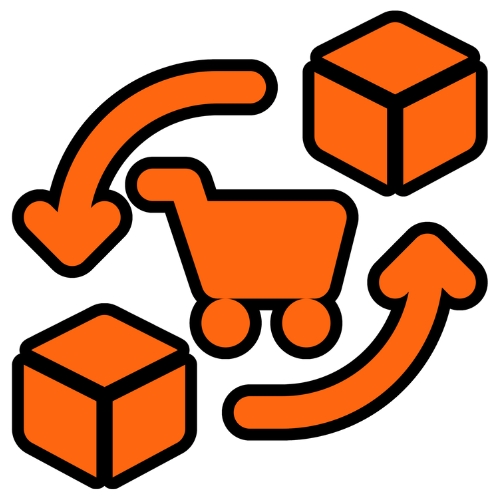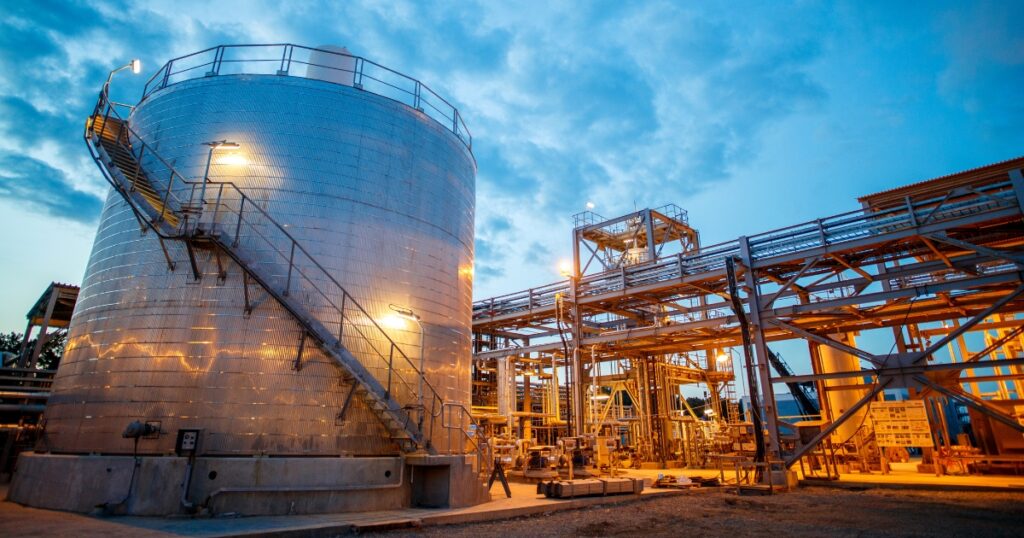
As South Africa grapples with fluctuating fuel price trends, understanding the factors influencing these changes is increasingly important for consumers and businesses alike. From global oil market dynamics to local taxation policies, numerous elements contribute to the ever-changing costs at the pump. What can South Africans expect in the near future regarding fuel prices, and how might these expectations impact everyday life and the broader economy?
Key Insights
- Factors Influencing Fuel Prices: Fuel prices in South Africa are influenced by global oil market trends, fluctuations in the Rand/USD exchange rate, and local taxes. These factors lead to continuous shifts in fuel costs.
- 2024 Fuel Price Predictions: The Central Energy Fund (CEF) anticipates potential decreases in petrol and diesel prices for 2024. However, the volatile nature of the global oil market could alter this outlook rapidly.
- Economic Impact of Fuel Price Changes: Increasing fuel prices raise expenses for consumers and businesses, reducing disposable income and profit margins. These changes also affect inflation rates, economic expansion, and government revenues.
About Arcadia Finance
Secure your loan effortlessly with Arcadia Finance. Enjoy no application fees and select from 19 reputable lenders, each fully compliant with South Africa’s National Credit Regulator standards. Benefit from a streamlined process and trustworthy options tailored to your financial needs.
Petrol and Diesel Price Forecast for South Africa in 2024
In 2024, South Africa’s fuel prices are expected to fluctuate due to various economic factors. As of June, the Central Energy Fund (CEF) has indicated potential decreases in both petrol and diesel prices. Petrol 93 and 95 are projected to decrease by approximately 124 cents per litre, while diesel prices could see a drop ranging from 109 to 119 cents per litre. These reductions come against the backdrop of volatile crude oil prices and fluctuations in the rand/dollar exchange rate, which continue to heavily influence fuel costs.
The first half of 2024 brought relief for motorists, with significant decreases in fuel prices attributed to lower crude oil prices and a slightly stronger rand. However, the global oil market remains unpredictable, and any substantial changes in oil prices or the rand’s exchange rate could quickly alter the current forecast. Geopolitical events and economic policies will also play pivotal roles in shaping fuel price trends in the upcoming months.
Looking forward, South African consumers should exercise caution as market conditions suggest potential volatility. While the current forecast offers some optimism, the inherent unpredictability of global oil prices and exchange rates means fuel prices could still rise unexpectedly. Remaining informed about these factors will be crucial for consumers to effectively manage their expenses.
By staying updated through reliable sources such as the Central Energy Fund and market analysts, South Africans can better prepare for potential changes in fuel prices and adjust their budgets accordingly.
Rising tariffs on fast-fashion giants like Shein and Temu add to the cost of living, similar to fluctuating fuel prices. Explore how policy decisions shape consumer expenses and the broader economic outlook.

Predictions
As we progress through 2024, experts have shared insights into potential fuel price trends in South Africa. According to the Central Energy Fund (CEF), there is an optimistic outlook for mid-year, driven by expectations of reduced prices owing to stabilizing international oil prices and a stronger Rand. By June 2024, motorists could potentially benefit from a decrease in petrol prices of approximately 89 to 92 cents per litre, while diesel prices may see a decline of about 75 to 87 cents per litre.
Looking ahead to the latter half of 2024, several economic indicators paint a nuanced picture. The global oil market remains volatile, influenced by ongoing geopolitical tensions and decisions made by oil-producing nations. Moreover, the performance of the South African economy, particularly the Rand’s exchange rate against major currencies, will be pivotal. A continued strengthening of the Rand could potentially mitigate any rises in global oil prices.
The cost of fuel remains unpredictable, with global and local factors influencing prices at the pump. For a deeper dive into how February 2025’s price surge will affect motorists, check out Petrol Costs Set to Climb Higher.
Current and Predicted Fuel Prices Overview
This table provides a comparison of fuel prices in South Africa for May 2024, June 2024, and the predicted prices for July 2024. It includes inland and coastal prices for different types of fuel, highlighting the expected reductions in prices due to favourable economic factors.
| Fuel Type | May 2024 Inland Price (R) | May 2024 Coastal Price (R) | June 2024 Inland Price (R) | June 2024 Coastal Price (R) | Predicted July 2024 Inland Price | Predicted July 2024 Coastal Price (R) |
|---|---|---|---|---|---|---|
| Unleaded Petrol 93 | 25.15 | 24.36 | 24.26 | 23.47 | 23.70 | 22.90 |
| Unleaded Petrol 95 | 25.49 | 24.70 | 24.62 | 23.83 | 24.00 | 23.20 |
| Diesel 0.05% | 22.15 | 21.36 | 21.23 | 20.44 | 20.80 | 20.00 |
| Diesel 0.005% | 22.24 | 21.48 | 21.34 | 20.61 | 20.90 | 20.15 |
The strength of the South African Rand plays a pivotal role in determining fuel prices. Get a deeper understanding of currency fluctuations and their effects on your wallet by reading our analysis on Rand Strength.

Factors Influencing Fuel Prices

Global Oil Prices
The price of crude oil globally serves as a fundamental determinant of fuel prices in South Africa. This price is influenced by various factors such as geopolitical tensions, supply and demand dynamics, and production decisions by major oil-exporting countries, particularly those within the Organisation of the Petroleum Exporting Countries (OPEC). For instance, any disruption in oil production in the Middle East can result in significant fluctuations in global oil prices.

Exchange Rates
Another critical factor affecting fuel prices in South Africa is the value of the South African Rand (ZAR) against the US Dollar (USD). Since oil is traded globally in USD, any depreciation of the Rand relative to the Dollar makes oil more expensive to import into South Africa. Conversely, a stronger Rand can help to mitigate increases in global oil prices.

Local Taxes and Levies
In South Africa, the government imposes various taxes and levies on fuel, including the general fuel levy and the Road Accident Fund levy. These taxes constitute a substantial portion of the fuel price. Changes in these levies, which are typically adjusted annually during the national budget speech, directly influence the price paid by consumers at the pump.

Supply and Demand Dynamics
Domestic supply and demand dynamics also play a crucial role in determining fuel prices. Seasonal variations, such as increased travel during holidays, can lead to higher demand and subsequently higher prices. Similarly, disruptions in local supply chains, such as refinery shutdowns or transportation issues, can cause temporary spikes in fuel prices.

Regulatory Environment
Government policies and regulations have a significant impact on fuel prices. This includes decisions regarding fuel price subsidies, strategic petroleum reserves, and policies aimed at promoting alternative energy sources. Changes in regulations can either alleviate or exacerbate the financial burden of fuel costs on consumers.

International Trade Agreements
Trade agreements and tariffs also influence fuel prices in South Africa. Any alterations in international trade policies or agreements can affect the cost of importing oil and refined petroleum products into the country. Trade tensions or the imposition of new tariffs often lead to increased costs, which are typically passed on to consumers.
The ups and downs of fuel costs keep consumers on edge, but recent shifts in petrol and diesel prices may finally bring some relief. As we analyse the future of fuel in South Africa, be sure to check out the latest insights in April 2025 Petrol and Diesel Price Update Brings Great News to see how these changes will impact motorists and businesses alike.
What is the Fuel Price Made Up Of?
The price of fuel in South Africa is determined by several key components, each contributing to the final amount consumers pay at the pump. Understanding these elements provides insights into why fuel prices fluctuate:
Basic Fuel Price (BFP)
The Basic Fuel Price is the largest component of the fuel price. It reflects the cost of importing refined petrol and diesel into South Africa. The BFP is influenced by international factors such as the global price of crude oil, the costs of refining oil into fuel, and shipping expenses. It is calculated based on the average international spot prices for refined petroleum products.
Wholesale and Retail Margins
These margins are set by the government and cover the costs and profits of wholesalers and retailers who distribute and sell fuel. The wholesale margin represents the profit wholesalers earn, while the retail margin includes costs and profits for fuel stations.
Taxes and Levies
Several taxes and levies are applied to fuel:
- General Fuel Levy: Collected by the government for general revenue purposes.
- Road Accident Fund (RAF) Levy: Funds the Road Accident Fund, compensating victims of road accidents.
- Customs and Excise Levies: Minor components that contribute to the overall cost.
Slate Levy
The Slate Levy helps recover cumulative losses (under-recoveries) by oil companies due to fluctuations in international oil prices and exchange rates. It balances costs when the cost of importing fuel exceeds the set Basic Fuel Price.
Storage and Distribution Costs
These costs include storing fuel at depots and distributing it to petrol stations nationwide. They cover maintenance of storage facilities and logistics associated with fuel transportation.
Exchange Rate
The exchange rate between the South African Rand and the US Dollar significantly impacts fuel prices. Oil is globally traded in US Dollars, so fluctuations in the exchange rate directly affect the cost of importing fuel into South Africa.
Fuel prices play a crucial role in shaping the economic landscape of any country. Find out how this and other factors contribute to the rivalry between Nigeria vs South Africa. Which nation is better positioned to thrive?

Economic Implications of Fuel Price Changes
Fuel prices have a profound impact on the economy, affecting consumers, businesses, and the broader economic landscape. Understanding these implications is vital for stakeholders to navigate and adapt to price fluctuations.

Effects on Consumers
Rising fuel prices directly impact consumers by increasing transportation costs. This results in higher expenses for commuting and travel, thereby reducing disposable income. As households spend more on fuel, less money is available for other goods and services, which can lower the standard of living. Moreover, higher fuel costs contribute to inflation, as businesses often pass on increased transportation costs to consumers through higher prices.

Impact on Businesses
Businesses that rely on transportation, such as logistics companies and airlines, face elevated operational expenses when fuel prices rise. These higher costs can squeeze profit margins, prompting businesses to increase prices for their products and services. Conversely, lower fuel prices reduce operational costs, potentially boosting profits and allowing businesses to offer more competitive pricing to consumers.

Broader Economic Impact
Fluctuations in fuel prices have far-reaching effects on the economy. They influence inflation rates by affecting the overall cost of living. High fuel prices lead to increased production and transportation costs across various sectors, which can dampen consumer spending and slow economic growth. For countries that import oil, high fuel prices worsen trade balances, while oil-exporting nations benefit from increased revenues. Governments also feel the impact, as fluctuations in fuel prices affect tax revenues and influence monetary policy decisions aimed at stabilizing the economy.
The variability of fuel prices plays a critical role in shaping economic conditions, affecting everything from household budgets to corporate profitability and national economic stability. Stakeholders must monitor these dynamics closely to anticipate and mitigate the impacts of fuel price fluctuations on their operations and financial well-being.
Rising fuel prices often lead to an increased reliance on alternative power sources. Find out how much you’ll need to invest in a backup power solution by exploring our comprehensive breakdown of Generator Prices.
Conclusion
Understanding the factors that influence fuel prices in South Africa is crucial for anticipating and managing their economic impact. The Central Energy Fund forecasts possible price decreases for 2024. However, due to the unpredictable nature of global oil markets and exchange rates, fluctuations are expected to persist. It’s essential for both consumers and businesses to remain informed and flexible, as shifts in fuel prices can greatly impact transportation expenses, inflation, and overall economic stability. By closely monitoring these factors, South Africans can more effectively navigate the challenges and opportunities brought about by changes in fuel prices.
Frequently Asked Questions
Fuel prices in South Africa are influenced by global oil prices, the exchange rate between the Rand and the US Dollar, local taxes and levies, supply and demand dynamics, and government policies. These factors collectively determine the final cost of fuel at the pump.
The Central Energy Fund (CEF) anticipates potential decreases in petrol and diesel prices for 2024. Specifically, petrol prices could decrease by approximately 124 cents per litre, while diesel prices might see a reduction ranging between 109 and 119 cents per litre. However, these projections are subject to change based on global oil market conditions and the Rand’s performance against the US Dollar.
Fluctuations in fuel prices impact the economy by influencing transportation costs, consumer prices, and inflation rates. Higher fuel prices reduce disposable income and increase the cost of goods and services, whereas lower fuel prices can potentially lower operational costs for businesses and consumer prices.
Consumers can manage rising fuel costs by adopting fuel-efficient driving habits, considering alternative transportation options, and staying informed about fuel price trends. Budgeting for potential increases in fuel expenses can also help mitigate the impact on household finances.
Geopolitical events, such as conflicts in oil-producing regions or decisions made by major oil-exporting countries, can significantly affect global oil prices. These changes subsequently influence fuel prices in South Africa, given the country’s reliance on imported oil. Keeping abreast of international developments allows stakeholders to anticipate potential fluctuations in fuel prices.
Fast, uncomplicated, and trustworthy loan comparisons
At Arcadia Finance, you can compare loan offers from multiple lenders with no obligation and free of charge. Get a clear overview of your options and choose the best deal for you.
Fill out our form today to easily compare interest rates from 19 banks and find the right loan for you.


